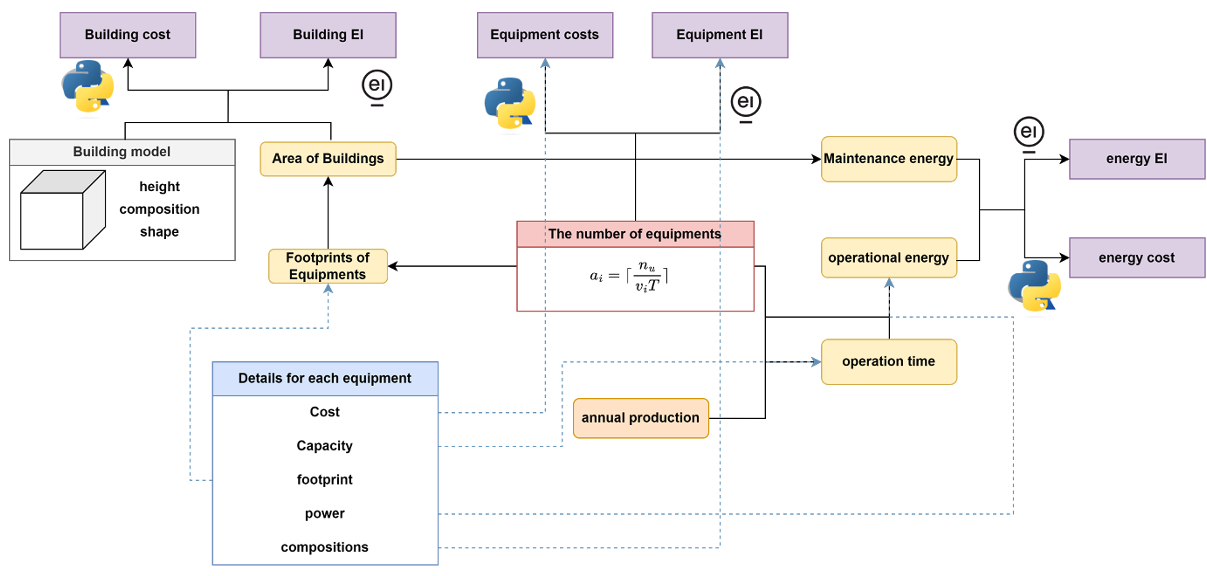Scaling effect for biorefinery cost reduction
Semester project
Autumn 2024
Context
Collaborating with TotalEnergies, IPESE is developint transition pathways for their conventional oil refineries to the future platforms with renewables. To further evaluate the potential of different renewable technologies, a good understanding of the future costs of various clean technologies is crucial.
In the past years, a cost estimation model was developed and the focuses were put on:
- Electrolyzers
- Amine-based carbon capture (to be published)
- Organic Rankine cycle and heat pump (to be published)
The cost model is currently based on Python, and the structure of the model can be seen in Figure 1. The model addresses the impact of mass production and scaling effects on cost reduction. Additionally, we used a fractional method to estimate labor, plant, equipment, and overhead costs.

In this project, we aim to apply the model to estimate the cost of a biorefinery, taking scaling effects into consideration.
Tasks
The project will include the following tasks:
- Understand mainstream biorefinery technologies, including biogasification and pyrolysis.
- Master the cost model.
- Apply the cost model to estimate the cost of biorefineries, considering different design parameters.
- Compare the results with literature data.
- Write a report or possible publication.
Skills
- Familiarity with Python, ideally with Quarto.
- Resilient and self-motivated.
- A background in chemical engineering is a bonus, but not required.
Supervision and organization
This project will be supervised by IPESE and interacted with the team from TotalEnergies.
There will be weekly meetings, either online or onsite in Sion. The workload is one day per week, with a flexible schedule.
The student will be evaluated by:
- A final presentation.
- A final report summarizing the work done.
If interested, please contact Yi Zhao (yi.zhao@epfl.ch) with your CV and transcript.
The IPESE laboratory is located in the Sion EPFL campus. Travels between Lausanne and Sion are compensated by EPFL.